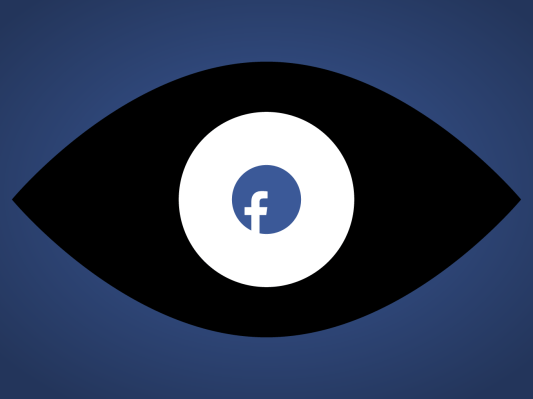Editor’s note: Dan Kaplan helps startups tell their stories. He’s done marketing for Twilio, Asana and Salesforce and blogs about marketing, growth, and storytelling at Threadling.
Imagine a scene:
You’re in your chair at home, the latest Oculus VR headset encircling your head, and you use its voice recognition feature to access Facebook.
Facebook’s virtual reality newsfeed appears in front of you — a three-dimensional, horizontally-scrolling wall of cards. Each card contains a virtual experience, and much like the auto-playing videos in Facebook’s newsfeed today, each of them offers a few moments of the experience on a loop.
The first card is from one friend, who uploaded a video (filmed with a consumer-friendly VR camera) featuring her three-year-old daughter and the family dog chasing each other in circles. It’s cute… and not what you’re looking for.
Instead of using a mouse or a finger-swipe to scroll through a flat, one-dimensional newsfeed, you lift your arm and make a swiping gesture to the left.
The next experience in the queue is from your best friend, who uploaded a clip taken from his video-drone’s flight over Manhattan at dusk.
With the drone’s multiple cameras capturing three dimensional space and the VR editing software that came preinstalled on Apple’s latest desktop devices, you’re witnessing a virtual experience of the most awe-inspiring parts of its journey.
You haven’t seen that friend in a few months and the flight over New York looks cool, so you go with it. You raise your arm and gesture forward with your hand.
The Facebook feed slowly zooms in and suddenly, you have the sensation that you’re gliding high over lower Manhattan at its most beautiful hour.
To the left, the sun is already past the Western horizon, but darkness hasn’t overtaken dusk. In front of you, the LED lights of thousands of offices and homes are visible, glowing brightly through the windows into their hulking, sky-scraping frames.
Your perspective moves steadily and smoothly over the southern edge of the Hudson River towards the buildings of the Financial District.
As the drone’s flight climbs rising above the buildings, its perspective shifts and you see the flow of cars and pedestrians, illuminated by the streetlights.
The whirring of the drone is loud—dominant but not overwhelming. The view is spectacular.
After circling the Freedom Tower, it’s over.
Your perspective zooms out again, and the next potential experience is on display.
This one is a news story from Vice, whose VR coverage of the latest protests has been excellent.
You go with that.
Now you have watching the scene of an unfamiliar street somewhere in the US, where a line of police in riot gear is forming in front of a dense, multi-racial crowd. The chants coming from behind you are colliding with the the commands coming from the police in front with their loudspeakers, insisting that the protesters disperse.
Ahead, at the intersection, it’s about to get real. A wall of cops has formed to block the protesters’ access to the street, and the protesters show no signs of giving in.
You look up, and see a shell arcing from the line of police, trailing tear gas. Suddenly, you’re in a grey haze, and the rhythmic justice chants have turns into chaotic yells and screams. Through it, you see large policemen with truncheons plowing through the crowd, swinging.
Though these events happened over a week ago, adrenaline floods your body, your stomach tightens, and you start to sweat.
You hadn’t been there, but it damn sure felt a bit like you had.

VR’s Many Billion-Dollar Bets
For virtual reality, the near-term billion-dollar opportunities are in entertainment — especially movies and games — and Mark Zuckerberg and the team at Oculus understand this.
Oculus VR has always had a substantial presence at gaming conferences, and recently announced its in-house VR movie studio.
But as virtual reality headsets and the necessary enabling technologies improve and catch on, huge opportunities in journalism, business, education, medicine, mental health, and more, will start to appear.
Zuckerberg knows this, too. As he wrote in his post announcing the acquisition of Oculus VR:
Immersive gaming will be the first [use case], and Oculus already has big plans here that won’t be changing and we hope to accelerate…but this is just the start. After games, we’re going to make Oculus a platform for many other experiences. Imagine enjoying a courtside seat at a game, studying in a classroom of students and teachers all over the world or consulting with a doctor face-to-face — just by putting on goggles in your home.
Despite the many billions of dollars waiting to be unlocked in VR apps, they pale in comparison to the power of the platform.
Sure, there are a handful of core virtual reality applications that Facebook probably could and should address (basic telepresence, communication, and media sharing) but the huge money comes if Facebook decides to “let one hundred flowers bloom.”
In this scenario, Facebook doesn’t just create the big social network for virtual reality (the “metaverse” as it is sometimes called). It also makes Oculus Rift into the fully realized platform it deserves to be.
This platform could arrive bundled with some core apps, but also offering developers powerful, easy-to-use plumbing like UI controls, gesture and voice recognition, and all sorts of VR-specific APIs and SDKs.
Here’s how this could play out:
- Encouraged by the rapid adoption of Oculus and their thoughtfully-considered, accessible VR development tools, developers of every stripe hop on board.
- As enabling technologies like specialized video hardware and processing software develop and make production easier, the movie, TV, and gaming industries shift their focus away from their legacy platforms and invest aggressively in virtual reality entertainment.
- Meanwhile, ambitious, idealistic visionaries are working on VR apps that enable remote education in virtual classrooms.
- Other slightly-less idealistic visionaries go after businesses, and make conferencing and collaboration apps that render today’s telepresence platforms and teamwork apps (yes, even Slack) obsolete.
- As Oculus’s technology and platform dive deeper into the mainstream, more and more use cases emerge: sales apps that make face-to-face selling possible from everywhere. Advertising platforms that make it easy to target and stream sponsored virtual experiences. Mental health apps for new kinds of VR-enabled therapies. Remote doctor visits. Whole new forms of journalism.
Though the term “game changer” gets bandied about a lot, sometimes it actually applies. It certainly does here: if Oculus Rift achieves its potential, it will change more than just a game, but entire industries.
The key question is whether or not Facebook will rise to the occasion and the answer boils down to whether or not Facebook is prepared and able to disrupt itself.
Facebook, Oculus Rift, And Zuckerberg’s Big Vision
Mark Zuckerberg used to say that he envisioned Facebook as a new kind of plumbing for the internet.
Unlike an internet mediated by links and accessed through Google search, the Facebook-enabled internet of Zuckerberg’s vision would center around human beings.
Along this trajectory, Facebook, the site, would eventually slip away and get replaced by Facebook, the infrastructure. No, this wouldn’t be a “social layer,” a la Google+, but a fundamental reconsideration of the internet’s fabric.
But the path from here to there treacherous.
The desktop internet where Facebook was born is and probably always will be a place of browsers and links. The smartphone internet (a place where Facebook has tried and struggled to reinvent itself many times), broke away from this mold and moved towards narrow-purpose apps.
But aside from their more-focused, always-accessible experiences and touch interfaces, the core concepts underlying native mobile apps aren’t that far removed from the desktop. Instead of opening a browser and typing in a URL, you open your home screen and tap that app.
This relatively narrow distinction is embodied quite well by Facebook, itself. Sure, it has forcibly ripped Messenger from its mobile Newsfeed, but scrolling through the Newsfeed is essentially the same experience on your smartphone as it is on your desktop.
The main difference is that most of the ads on your smartphone are links to mobile apps.
These virtual experiences represent just one narrow component of the metaverse
The ideal social experience in virtual reality is a radical departure from all of this. Sure, you could build something like the VR app I imagined above: a scrolling collection of virtual experiences, shared by friends and brands.
But these virtual experiences represent just one narrow component of the metaverse: the fully-realized thing involves projecting your identity via an avatar into virtual space and socializing with other people. It’s far more like an evolved Second Life than it is like a VR Newsfeed.
In many ways, the social experience of today’s Newsfeed—a passive way to keep in touch with the goings-on in your friends’ and family’s lives—is shallow. Compared to the immersion of the metaverse, it’s flat.
But the Newsfeed is the world that Facebook built, and it is the world that it knows. It’s also the world that currently throws off billions of dollars in cash.
Facebook Disrupts Itself
Though Facebook has found some steady ground for its established ad business in mobile, it has tried many times to build the next generation of social apps in-house and repeatedly failed.
Indeed, Zuckerberg had to buy Instagram for $1 billion in pre-IPO stock and WhatsApp for 10% of Facebook’s post-IPO market cap to ensure his company could maintain a strong foothold in social for the next 3-5 years.
Meanwhile, Snapchat has released Discover, one of the first genuinely new digital storytelling mediums to hit social in years (and something that potentially could have come from Instagram).
So we return to Oculus Rift.
If Facebook wants to take that $3.2 billion dollars it invested to acquire Oculus VR and turn it into hundreds of billions of dollars, it will have to do more than feed it money.
When the time comes, Facebook will have to be ready, willing, and able to deploy the the tremendous resources and focus necessary to make the metaverse and the Oculus Platform a reality and a success.
The good news is that the metaverse is pretty close to the social internet that Zuckerberg has envisioned. The bad news is that huge ships generating billions of dollars in profits from an established business are notoriously hard to turn.
With Oculus Rift, Facebook could end up facing a Catch-22. If it wants Oculus to achieve its massive potential, it has to build out and open up its platform. But if Facebook opens up the platform, it faces the risk of someone building the ideal social VR experience faster or better than it could.
Sure, it could fend off rival social VR apps by locking them out. But then it would be stifling the platform, empowering the Oculus competitors that will inevitably arise.
If Facebook wants to seize the opportunities in social VR, it will eventually have to pivot its focus away from the Newsfeed and go all-in on this new, uncharted world.
